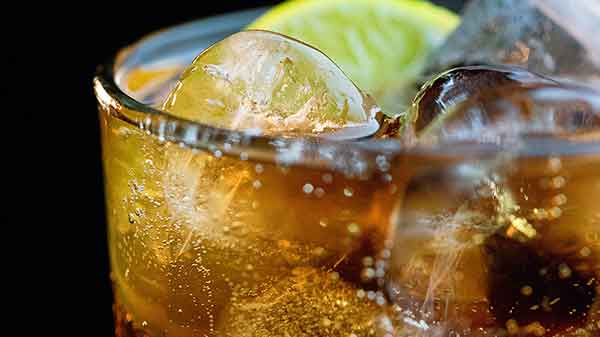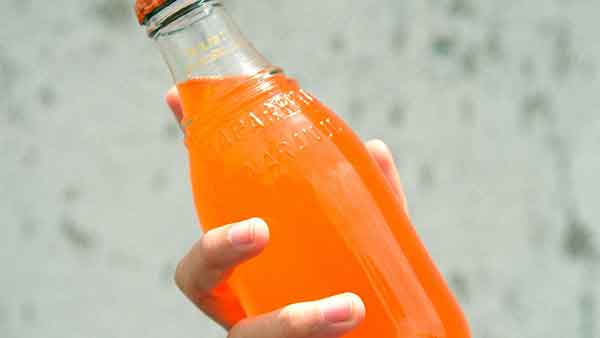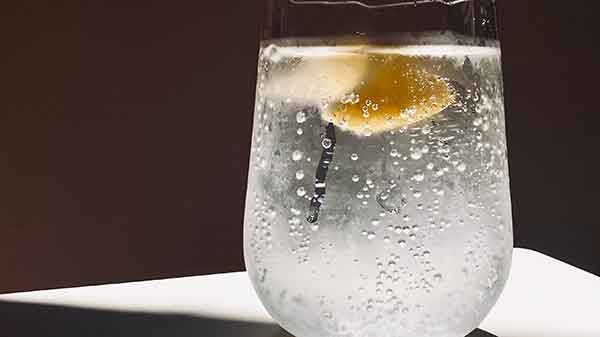Sugar-free drinks can be safe to drink? Application of sweeteners in beverages
According to nutrition experts, the daily intake of sugar should not exceed 50 grams, and it is best to control it to about 25 grams or less. A 330ml glass of Coke contains about 35 grams of sugar. Long-term excessive consumption of sugar can increase the risk of dental caries, obesity and many other chronic diseases. Coke and other carbonated beverages have also been criticized for this.
So scientists and food manufacturers have turned their attention to sweeteners, and a variety of “sugar-free drinks” have been introduced.
Are these sweeteners really safe? Are sugar-free drinks as much as you want to drink?

Are all kinds of sweeteners safe?
Aspartame
Aspartame is a synthetic sweetener that has been in use for almost 40 years. There is a lot of controversy about it, but many leading medical institutions consider it to be safe.
In 2005, an animal study concluded that very high doses of aspartame could cause lymphoma and leukemia in rats.
However, many higher-quality epidemiological studies have since concluded that aspartame-containing beverages are not associated with lymphoma, leukemia, brain cancer, etc.
Of course, there are limits to this safety. If you follow the European Food Safety Authority’s 2013 aspartame standard, which is 40 mg per kilogram of body weight. That means a 60-kilogram person allow to take almost 2.4 grams a day, the upper limit.
But be aware that there is a genetic disease phenylketonuria. Patients with this disease cannot metabolize phenylalanine in their bodies. They must be careful with aspartame.
Erythritol
Erythritol is a low-calorie sweetener found naturally in some fruits. Most of the powdered erythritol that is generally purchased is produced through industrial methods.
Erythritol is not completely calorie-free, it has 0.24 kcal per gram. This is equal to 6% of the calories and 70% of the sweetness of sucrose. It does not stimulate insulin secretion, does not affect blood sugar, and has no effect on triglycerides and cholesterol. It also does not change much when it enters the body from the intestine and is eventually excreted through the kidneys.
So studies have shown that erythritol is still very safe.
Sodium saccharin
Sodium saccharin is also known as saccharin. It has a long history and has been widely used since 1879 in the processing of beverages, jellies, popsicles and other foods, making it one of the oldest sweeteners. It is 300 to 500 times sweeter than sucrose. It does not provide energy does not participate in human metabolism and can also be used in the diets of diabetic patients.
In addition, the common types of sweeteners include cyclamate, acesulfame potassium, sucralose, xylitol, maltitol, and so on.
Many authorities, such as the International Codex Alimentarius Commission, the European Food Safety Authority, the U.S. Food and Drug Administration, the Food Standards Agency of Australia and New Zealand, Health Canada, and other agencies, believe that such approved sweeteners do not cause harm to human health if used in accordance with the standards.
So from this perspective, safety is not a problem.

According to experts at Harvard University, you can think of these sweetened foods as a staged replacement in the transition to a healthier diet, and you can rely on them to gradually develop healthier eating habits instead of rejecting them completely.
Sugar-free is good, but don’t be greedy.
Although there is no problem with the safety of some sweeteners at present, it does not mean that such sugar-free drinks can be drunk as water.
Sweeteners can also have an effect.
Many studies have shown that in the case of natural food intake, drinking sweetened beverages often does not really reduce weight and improve blood sugar. This alternative is hardly a healthy choice for ordinary people.
Besides, there are other ingredients in beverages besides sweeteners, and excessive intake is also harmful.
High phosphoric acid content affects the absorption and utilization of minerals.
Many sugar-free drinks are also carbonated drinks. Which contain high levels of phosphoric acid, and excessive intake of phosphorus will affect calcium absorption, and the utilization of minerals such as iron, manganese, and zinc will also be interfered.
Also, it is currently suspected that excessive intake of carbonated beverages may increase the risk of osteoporosis, but there is no real evidence.
Easy to get full after drinking.
Sugar-free drinks will bring a certain sense of fullness. Under normal circumstances, people’s daily food intake is relatively stable. Drinking more drinks may reduce the intake of other foods. In the long run, it may also lead to a lack of other nutrients and various nutrition-related diseases. But from another perspective, drinking this kind of beverage is also helpful for weight loss. (Some drinks-related agency-sponsored clinical trials are the result.)
Summary
In fact, everyone’s diet, exercise, illness, etc. are different, so it’s a matter of personal intake. I can only say that if you have to choose between regular drinks and sugar-free drinks, then choose sugar-free ones. But it is still recommended to drink as little as possible.

If the best choice is to not drink any sugary drinks or sweetened drinks, it is natural to drink water directly. This is the healthiest.
Also not sweetened coffee, tea drinks, and soda water are also good.
RECENT POSTS
ANY QUESTIONS?
Thank you very much for visiting our website. If you have any further questions or requests, please do not hesitate to contact us.
Send us an e-mail and you will receive an answer shortly.
